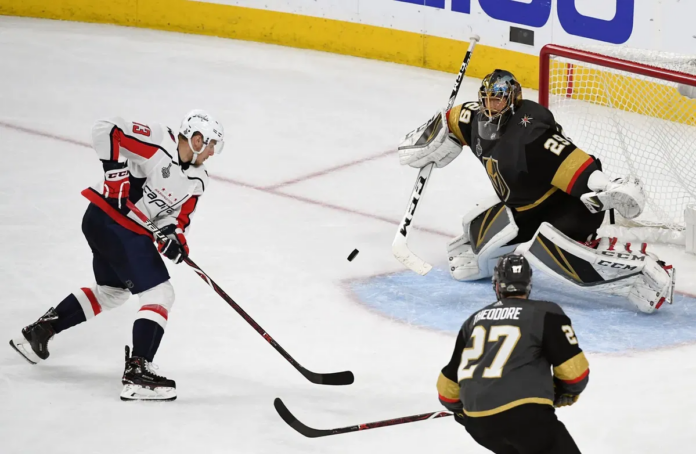It’s mid-April, and the NHL playoffs haven’t even started. Even worse, we don’t even know the whole schedule yet or the teams that have qualified. Big changes are happening, team rosters are tightening up, and the fans and Pierre LeBrun are losing the ability to keep up in the way that they could at the start of the season. Did all of y’all know it’s been more than a month since Brad Marchand was traded? I didn’t think so, and that’s fair, because in a season that stretches out so long, it’s hard to maintain a healthy relationship with timescales in general. It started around mid-March—the malaise, exhaustion, and waiting for the playoffs to start already!
John Buccigross, who hits the nail on the head more often than not (remember, he’s the guy who predicted Ovi would break Gretzky’s record before even Ovi knew it), summed it up quite nicely in a recent X statement: “The season is too long and the players are bored.” he said, a nod to the dwindling shine on the ice as the playoffs draw closer. Everyone in the NHL is either suspended or injured or just unimpressive.
But things didn’t end here; Buccigross’ statement encouraged Pierre LeBrun to propose an entire NHL calendar rework. Start the regular season around September 22nd, get the playoffs going in early April, and hand out the Stanley Cup by the first week of June, LeBrun said, adding, “Hold draft around June 20, open free agency June 25-26.”
ADVERTISEMENT Article continues below this ad
When you first read it, it sounds a bit unfounded. How can Pierre LeBrun just be rewriting an entire NHL calendar like that? But then read it again and clock all the dates, and it really doesn’t sound that bad. Fans, however, always have their own, unique takes on things, and while some might agree, others wholly don’t.
NHL fans react to Pierre LeBrun’s ‘calendar revolution’
The general rule of thumb is to take all fan reactions with a pinch of salt. Know that fans outcries on X are most often not founded in pure reason, but rather some complex form of passion that manifests itself in online rants. Of course, the reason exists, and some were genuinely interested in understanding why LeBrun’s model isn’t the norm yet, with one fan saying, rather politely for X, “In your years of campaigning for it, Pierre, you must have gathered the consensus counter-argument from owners/GMs. What is it?” Though we still await Pierre’s equally polite response to this, the sad truth is that the reason nothing has changed all these years is probably to maximize revenue. More games = more money, and even though this means draining players and fans alike, it’s unlikely to change unless the reason is more money.
ADVERTISEMENT Article continues below this ad
Other fans responded with rigid nostalgia. A strange, oxymoronic sort of mindset, that one: “Stop with your self-serving mission. July 1st is a tradition.” This fan said, evidently holding Free Agent Frenzy Day as sacred and close to their heart as Christmas.
Others, of course, offered their own reworkings of the NHL calendar. Imagine all the analysts losing jobs to X users in a hockey debate? This one fan offered his own plan, “Start season on November 1st, end season on July 31st. Nothing is going on in June & July; NHL will OWN those 2 months.” Obviously this fan isn’t too big on Wimbledon, or they wouldn’t have planned for the big games to clash.
Another fan agreed with Pierre LeBrun’s layout, but wanted to shorten it even further. “Everything, but be done by 5/31.”Which is a fair ask. Truth be told, back in the early days, pre-1967 NHL games were much shorter, with players playing between 24 and 48 games per season; they now average around 82 regular season games. Talk about inflation.
ADVERTISEMENT Article continues below this ad
And then there was that hark back to tradition; despite the fan understanding the rest of Pierre LeBrun’s calendar, shifting Free Agency Day from July 1st was the big no-no: “July 1st for free agency forever. I disagree with your statement because of that.”
It’s a tough thing to change at this point while keeping all parties happy; however, if players are losing morale towards the end of the NHL regular season, then is it really worth it to keep dragging things on?


